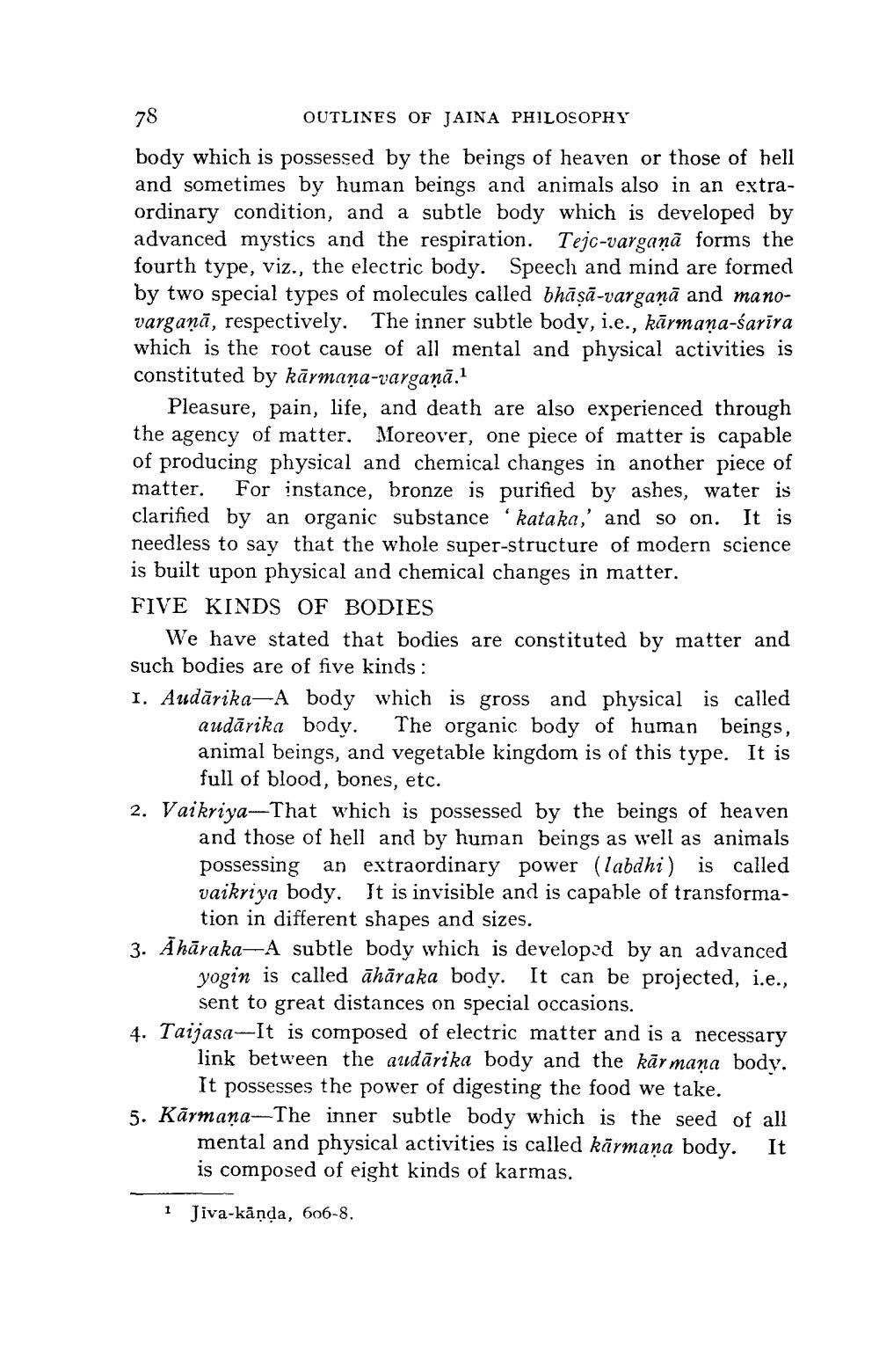________________
78
OUTLINES OF JAINA PHILOSOPHY
body which is possessed by the beings of heaven or those of hell and sometimes by human beings and animals also in an extraordinary condition, and a subtle body which is developed by advanced mystics and the respiration. Tejc-vargaņā forms the fourth type, viz., the electric body. Speech and mind are formed by two special types of molecules called bhāṣā-vargaņā and manovargaņā, respectively. The inner subtle body, i.e., kārmana-sarira which is the root cause of all mental and physical activities is constituted by kārmana-varganā.
Pleasure, pain, life, and death are also experienced through the agency of matter. Moreover, one piece of matter is capable of producing physical and chemical changes in another piece of matter. For instance, bronze is purified by ashes, water is clarified by an organic substance 'kataka,' and so on. It is needless to say that the whole super-structure of modern science is built upon physical and chemical changes in matter. FIVE KINDS OF BODIES
We have stated that bodies are constituted by matter and such bodies are of five kinds : 1. Audārika-A body which is gross and physical is called
audārika body. The organic body of human beings, animal beings, and vegetable kingdom is of this type. It is
full of blood, bones, etc. 2. Vaikriya-That which is possessed by the beings of heaven
and those of hell and by human beings as well as animals possessing an extraordinary power (labdhi) is called vaikriya body. It is invisible and is capable of transforma
tion in different shapes and sizes. 3. Ahāraka-A subtle body which is developed by an advanced
yogin is called āhāraka body. It can be projected, i.e.,
sent to great distances on special occasions. 4. Taijasa-It is composed of electric matter and is a necessary
link between the audārika body and the kār mana body.
It possesses the power of digesting the food we take. 5. Kārmana-The inner subtle body which is the seed of all
mental and physical activities is called kārmana body. It is composed of eight kinds of karmas.
1
Jiva-kānda, 606-8.




